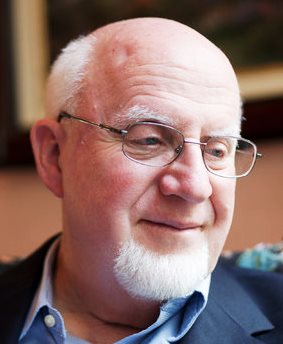
In his Gospel, Luke relates Jesus’ teachings and doings while in person on earth. In Acts, his second volume, Luke describes Jesus’ work accomplished from heaven and performed through his Spirit on earth (Acts 1:5). The word “Spirit” appears 70 times in Acts, almost twice as many as in the New Testament book with the second-highest number. Throughout the Book of Acts, the Holy Spirit is busy, either bringing together a gospelizer and a ready hearer, or filling the gospelizer with boldness to speak the word faithfully and with power and grace.
Meanwhile, Luke’s summaries of evangelistic discourse demonstrate another truth: Evangelism that is Spirit-powered and Spirit-led testifies to what Jesus did and what he suffered–the perfect doing and dying that set us right with God–instead of what we do in response to the only work that ever reconciled any sinner anywhere at any time. Consider Peter’s remarks on Pentecost (Acts 2:14-41)–not a prepared sermon but a spontaneous explanation of events that morning which mockers falsely tried to pin on potable “spirits.” No, said Peter, the “last days” have arrived, God is pouring out his Spirit as he promised long ago through the ancient prophet Joel, and whoever “calls on the name of the Lord” will be delivered.
That brings us to Jesus, says Peter, whom God endorsed by mighty works and wonders and signs. A Judean crowd hell-bent for blood pressured the Romans to murder Jesus by execution, but God raised him from the dead, exalted him to heaven and named him Lord and Christ. That godless crowd and the crowd hearing Peter include many of the same faces and Peter indicts them as a group, using second-person plural language (“y’all crucified and killed”). Convicted en masse, they ask what to do.
Peter, still speaking in second-person plural, commands the group: “Y’all repent for the forgveness of y’all’s sins and y’all will receive the gift of the Holy Spirit.” The second-person singular command to be baptized in the name of Jesus the Messiah allows each individual to express repentance and step away from the mob (“save yourselves from this crooked generation”) with its collective guilt. Some 3,000 are baptized that same day.